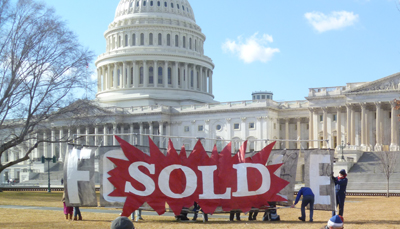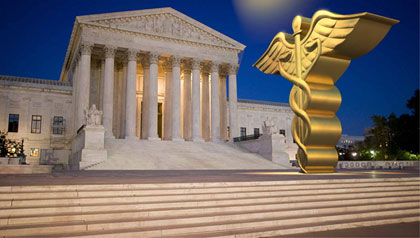This is a guest post on Citizens United by Greg Colvin, who is a partner at the firm Adler & Colvin. It was originally published on OurFuture.org.
We've seen the signs and heard the chants: "Abolish Corporate Personhood!"
I'm very sympathetic to the cause of reducing the power of big business corporations to control our government, our economy, our consumer culture, our society, and our lives. We can't have democracy without a major shift of power into the hands of the people.
But would an amendment to remove all rights of corporations from the US Constitution accomplish that? Would there be unintended consequences?
There are two problems with a constitutional amendment that abolishes corporate personhood. One, it does too much, and two, it does too little.

 Whenever lawmakers consider any kind of meaningful reform, the proposed remedies inevitably create winners and losers. Physicians' incomes most likely will be affected in some way, as will the profits of all the other major players: the hospitals, the drug companies, the medical device manufacturers, and the insurers, just to name a few. The list is long, and the platoons of highly paid and well-connected lobbyists who represent their interests comprise a large private army that conquered Capitol Hill years ago.
Whenever lawmakers consider any kind of meaningful reform, the proposed remedies inevitably create winners and losers. Physicians' incomes most likely will be affected in some way, as will the profits of all the other major players: the hospitals, the drug companies, the medical device manufacturers, and the insurers, just to name a few. The list is long, and the platoons of highly paid and well-connected lobbyists who represent their interests comprise a large private army that conquered Capitol Hill years ago. The high court announced earlier this week that it will hear oral arguments on the constitutionality of the law next March. A decision is expected in June, just a few weeks before the parties hold their conventions. Regardless of which way the justices go, the decision will ensure that health care reform will be as contentious a campaign issue as it was in 2008.
The high court announced earlier this week that it will hear oral arguments on the constitutionality of the law next March. A decision is expected in June, just a few weeks before the parties hold their conventions. Regardless of which way the justices go, the decision will ensure that health care reform will be as contentious a campaign issue as it was in 2008.